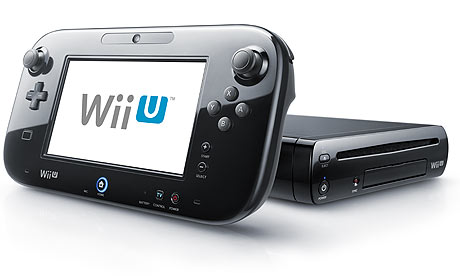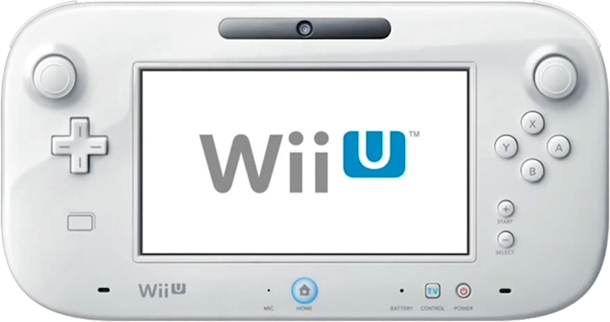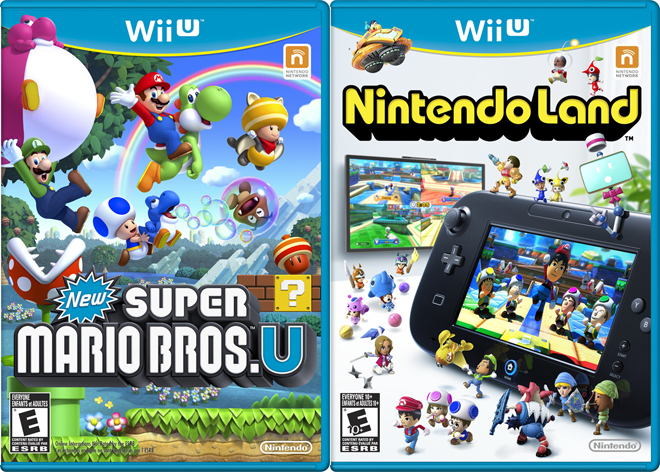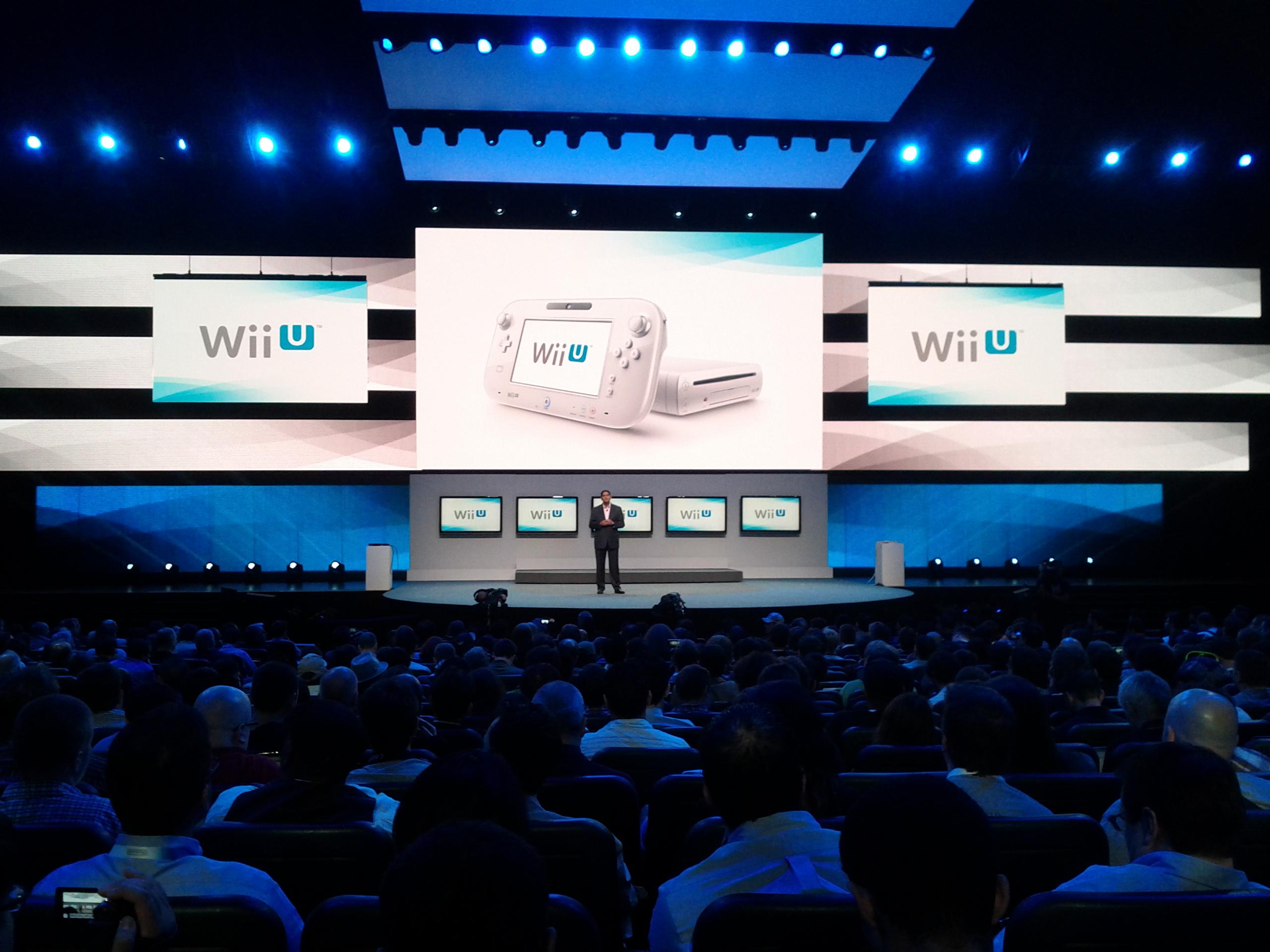This post has not been edited by the GamesBeat staff. Opinions by GamesBeat community writers do not necessarily reflect those of the staff.

Since the 1980’s, Nintendo has been one of the biggest, most widely known names in the video games industry, and a dominating force in sales, not only with home consoles but also with handhelds, as well as their various video game franchises: Mario, Pokemon, Metroid, Zelda…you name it. The company’s longest run of success was perhaps from the release of the original Nintendo Entertainment system in 1985, up until about the time the Nintendo Game Cube was released in 2001.
When Nintendo prepared to unleash the Game Cube's successor, the Wii, in 2006, expectations were at an all time high, and Nintendo had envisioned a gaming revolution involving the system’s state of the art motion controls that were sure to blow the Playstation 3 and Xbox 360 out of the water.
When the Wii was actually released, the results didn’t exactly live up to what the company had hoped. The motion controls ended up being the one major fault in the system, as they were alienating to many hardcore gamers who were so used to a traditional control scheme by then. To make matters worse, a fair amount of developers were hesitant to apply the motion control formula to their releases, resulting in a somewhat limited catalog of titles for the Wii, aside from the usual names we see from Nintendo.
The Wii’s marketing campaign turned out to be another huge mistake on their part, showcasing the console as a family oriented system, which also turned away many gamers who could not take it seriously as a solid console for hardcore gaming.
In the end, the Wii did in fact beat the Xbox 360 and Playstation 3 in the sales department (as of quater 1, 2012), but its reputation with the hardcore gaming community had been tarnished, and Nintendo has since been overthrown as the king of video games while Sony and Microsoft have since been tied for the top spot.
As the time of eighth generation consoles approaches, it seems as though Nintendo has chosen to get a head start and release their newest console, the Wii U, much earlier than the expected releases of whatever Sony and Microsoft have in store.
It’s been stated that with the Wii U, Nintendo aims to make up for its past mistakes and gain back the hardcore gaming community.
As of November 18, the console has been officially released in North America. While it’s still far too early to determine any type of results, there are a few aspects of the console that may reinforce a few negative predictions. To be specific, there is still a chance that the Wii U will not gain back the hardcore gaming community, for a few key reasons:
1. The Game Pad
Surely the defining feature of the Wii U, the game pad serves as the primary controller and highly resembles Nintendo’s DS handhelds.

If you think about it, it’s kind of ironic, and a bit contradictory, that Nintendo has chosen to utilize a peripheral as the console’s main controller, seeing as though they are hoping to lure hardcore gamers back to their side. Yes, the game pad is revolutionary, just as the Wii-mote was, but let’s be honest; hardcore gamers are more than likely in favor of traditional controllers in the likes of the ones featured with the Playstation 3 and the Xbox 360, as well as the ones included with the endless amount of predecessors.
Many will agree that the enormous touch screen is the game pad's biggest fault, greatly increasing the size of the controller — and history should tell us that gamers prefer their controllers to be of a smaller stature (remember the complaints about the large size of the original Xbox controller).
Not only that, but a bigger issue is that the screen will inevitably turn out to be a major distraction, seeing as though many games on the console will require us to split our attention to two interfaces at once.
If Nintendo was so concerned about the hardcore gaming community, then equipping the Wii U with a traditional controller would have been a far more logical choice. Yes, players can purchase a traditional controller separately for an extra charge, but they certainly shouldn’t have to.
On top of that, another fault of the game pad is that it makes a grueling hassle out of voice chat. Players will in fact be able to use it, but they will have to buy a headphone and microphone set separately, as the game pad’s built in microphone cannot be used during games. Again, why should gamers have to pay extra for a peripheral that should have been included with the console in the first place?
Seeing as though many hardcore gamers are first person shooter veterans, voice chat will be essential to their gaming experience with the Wii U, and the console will unlitmately fail them should they be unable to converse with their teammates during game time.
2. Lacking in unique features
Aside from the Gamepad, does the Wii U have any other unique features to set itself apart form competitors, and persuade consumers to give it a try?

The release dates of both the next Playstation and Xbox still remain unconfirmed, and seeing as though the Wii U offers very little unique features (other than the game pad, of course), this gives gamers little reason to go out of their way to buy a Wii U, when their current consoles will still be good for another two years or more.
If you take a look at the list of Wii U launch titles, you may notice that most of the games listed have already been released on the Playstation 3 and Xbox 360, leaving the usual Nintendo titles as the only unique entries to the console’s catalog so far. There are however, a few console exclusives, but so far, none of them have done anything special to grab anyone's attention.
Perhaps if games released on the Wii U were at a lower price than its competitors, then customers would consider switching over, but this is not the case. Games on the Wii U remain at the usual, steep $60 price, which is again, one less reason for gamers to go out of their way for a new console.
If buying multiple $60 games a month amounts to a staggering total, then how could any of us afford to keep up with those expenses on top of a new $300 console?
3. The early release
As I mentioned earlier, the Wii U has been released much earlier than both Sony and Microsoft’s forthcoming consoles. Some may see this as a smart business move, while others may see it as a fatal mistake.

How could Nintendo releasing their console almost 2 years earlier than their competitors backfire on them? Well, as I also stated earlier, the Playstation 3 and Xbox 360 are expected to hold up for another couple of years, and most titles on the Wii U are also available on these consoles already (or will be at the same time, for those titles yet to be released).
As gamers and consumers, we already have to pay a fair amount for our new consoles and games (a bit more that we should be, as many believe). Why would we spend extra money on a new console if we don’t have to?
Not yet at least — of course we will have to pay up when the new Playstation and Xbox show their faces, but a few more years being of able to save our money makes all the difference.
When the time does come, and Sony and Microsoft reveal their new products, the Wii U will have already been out for almost two years, and therefore has a slight risk of being outdated, compared to whatever Sony and Microsoft plan to put out.
No, I’m not saying this because I think both Sony and Microsoft are better than Nintendo — capable of getting a one-up on them whenever they please. I say it because, seeing as though Nintendo has gotten what they see as a head start, Sony and Microsoft now have a chunk of extra time up their sleeves, time that can be taken advantage of to do whatever they can to outdo the Wii U on multiple levels.
Is the Wii U a generally bad console? No, not in any sense, but Nintendo’s efforts to gain back the hardcore gaming community may be in vain.
Let’s be honest here, if Nintendo wanted to lull us back into their neck of the woods, they should have manufactured a traditional console — with a traditional controller — a console that would be capable of competeing with the Playstation and Xbox brands.
It's no secret that gamers are always open to new ideas and concepts in their games, but not necessarily in their consoles. While a certain amount of change is always productive in pulling a product forward, there is always the case of not needing to fix what is not broken.
Nintendo took a huge blow when they released the Wii and marketed it on its motion controls, making it appear to be a family oriented system and alienating a disheartening amount of their players. While the company continues to dominate in the handheld department (an accolade which they rightfully deserve), the pit the company has dug themselves into with the Wii may be a bit too deep for them to climb out of, as Sony and Microsoft continue to run off with the prizes.
While it is a bit early to conclude on any solid results, the fact that Nintendo still insists on pushing peripherals may in fact be the company’s downfall in the home console department.
Admittedly, the Wii U will likely sell exceptionally well just as the Wii did, but Nintendo’s goal of gaining back hardcore gamers may end up being more of a fantasy than a possibility.
